This past Sunday evening (as I write this) my wife and I enjoyed an evening at a friend’s house. We sat on the patio with he, his wife and his son, who just happens to be the same age as our youngest son. Difficult topics were being discussed and, at one point, I commented on how ‘in the old days’ someone as young as the son wouldn’t even presume to speak; that he’d just sit and listen. He seemed startled and asked why and to explain I had to give a description of what I meant.
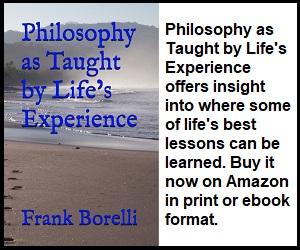 In the ‘old days’ and by that I mean the 17th and 18th century, and even more recently than that, when gentlemen sat around and held conversations about the topics of the day, the younger men who had reached the age where they were old enough to be there but still not ‘adult,’ would sit quietly and listen. They listened and learned. The older men discussed the topics and offered opinion. Why was the opinion of the older men of greater value? Because of their level of life’s experience. The more learned (more educated) among them, with greater levels of life’s experience, were usually considered the wisest. The younger men, no matter how intelligent, had lesser levels of life’s experience so their opinions – their ‘wisdom’ – was also considered of lesser value. This wasn’t an insult to them, but an accepted reality of the time.
In the ‘old days’ and by that I mean the 17th and 18th century, and even more recently than that, when gentlemen sat around and held conversations about the topics of the day, the younger men who had reached the age where they were old enough to be there but still not ‘adult,’ would sit quietly and listen. They listened and learned. The older men discussed the topics and offered opinion. Why was the opinion of the older men of greater value? Because of their level of life’s experience. The more learned (more educated) among them, with greater levels of life’s experience, were usually considered the wisest. The younger men, no matter how intelligent, had lesser levels of life’s experience so their opinions – their ‘wisdom’ – was also considered of lesser value. This wasn’t an insult to them, but an accepted reality of the time.
To continue this piece, let’s set a few definitions for the terms at the heart of what’s being discussed. For our purposes here:
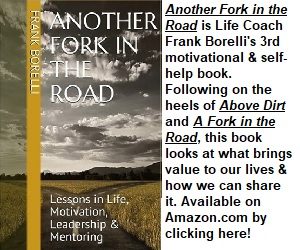 Knowledge means education, whether it’s formal or informal. Knowledge is the amount of learning accomplished by the individual.
Knowledge means education, whether it’s formal or informal. Knowledge is the amount of learning accomplished by the individual.
Experience is life’s experience. Typically this can be measured by a person’s age and status in life (dependent on parents, independent, emancipated, etc.) but there are some cases where people with fewer years have greater levels of experience in certain events. The example I can give is the 22 year old service veteran with combat experience versus the 45 year old man who has never served and never seen combat. If the topic of discussion is combat and strategies in such, the opinion of the 22 year old may be of greater value based on his experience.
Wisdom, for our purposes, is the combination of knowledge and experience. Wisdom is using experience to interpret and apply knowledge to given events and it is the filter through which current events are interpreted.
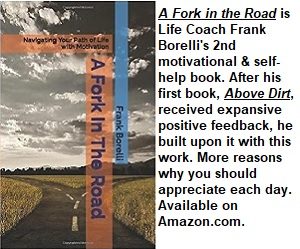 It is vital to understand that none of these items are static. Each of them changes across time and the equation can be shown thus:
It is vital to understand that none of these items are static. Each of them changes across time and the equation can be shown thus:
(Knowledge + Experience) x Time = Wisdom.
Therefore, changing the value of Knowledge, Experience or Time changes the ultimate value of Wisdom. Why would knowledge or experience change across time? Let’s look at that a moment.
When we’re children, knowledge is developed exponentially. Formal education occurs with primary and secondary schooling but there is also a great deal of learning that is done through the application of life. That is to say ‘by doing.’ A child playing in a puddle is learning just as he is when he’s building blocks or climbing or chasing the family pet. All events in the child’s day teach him something. Once the most basic bits of knowledge have been learned and become accepted as a simple part of day to day existence, then we focus on formal education as a measure of knowledge. It is generally accepted that a person with a PhD has a much higher level of knowledge than the person who has only a high school diploma or a GED (General Education Diploma).
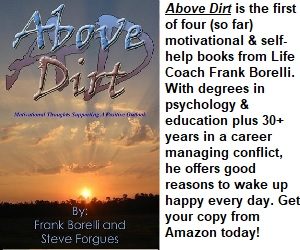 Every child also has varying levels of experience but adults generally view all childhood experiences as universal to some extent. School is school. Playground is playground. Friends are friends. Playing outside is playing outside. What is all too often dismissed are the experiences where a child is bullied; friendships fall apart; young love occurs and falls apart (or not); participation in sport events goes well… or not. What is of great import to the child living through it is usually not appreciated by the adults who have already lived through it and now have larger issues that they try to manage day to day.
Every child also has varying levels of experience but adults generally view all childhood experiences as universal to some extent. School is school. Playground is playground. Friends are friends. Playing outside is playing outside. What is all too often dismissed are the experiences where a child is bullied; friendships fall apart; young love occurs and falls apart (or not); participation in sport events goes well… or not. What is of great import to the child living through it is usually not appreciated by the adults who have already lived through it and now have larger issues that they try to manage day to day.
For the children who have finished high school or even college or even those who have a PhD and are in their late 20s, when they are viewed by the person who is in their 50s, the level of assumed wisdom will still be vastly different. That too depends on the circumstance of how the PhD was secured. If that young person worked full time while they went to school full time to finish that degree, the 50-year-old looking at them will see a different level of experience and wisdom as compared to the young person who finished their PhD while not working and living dependent on their parents.
Another impact on Knowledge value is this: For the freshly graduated college student, much of their knowledge isn’t their own. It’s knowledge they’ve been given by teachers, professors, fellow students, the internet, etc. It’s not something they have learned from direct experience and experimentation, but is instead what someone else learned and is passing along. Sometimes that knowledge is of great value… but not always. The unfortunate reality of today’s world is that we have some, if not many, teachers and professors (and internet “influencers”) who have little to know life’s experience but are credentialed as very knowledgeable in a given topic. Unfortunately, they don’t restrict their commentary in the classroom to the topic at hand. They also comment on politics, religion, society, values, etc. Because of their credentials in topic X, many young folks (the students) give great credence to their opinion about topic Y.
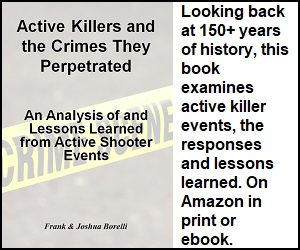 Then that student becomes an independent adult and begins to apply all that knowledge they’ve gained to life… and they gain experience. They learn lessons about life. They gain wisdom as they apply knowledge day to day living life.
Then that student becomes an independent adult and begins to apply all that knowledge they’ve gained to life… and they gain experience. They learn lessons about life. They gain wisdom as they apply knowledge day to day living life.
As a result, the knowledge they thought was “truth” can change and be modified as it is proven or disproven through living life. They find that some of what was presented as knowledge by teachers and professors doesn’t hold true when applied in real life. The end result is wisdom. They have taken the knowledge, filtered it through life’s experience, discovered what is and isn’t of value, and emerged from various experiences with wisdom gained.
The challenge we have today is that society says the opinion of an 18-year-old with very limited knowledge and very little life’s experience is somehow of the same value as that of a 55-year-old man who has higher levels of formal and informal education (knowledge), vastly greater levels of life’s experience and, therefore, higher levels of wisdom. There is simply no way that the value of wisdom can be the same – and never will be. As the 18-year-old continues to grow and learn, whether it be through increased knowledge or increased life’s experience (or both), so is the 55-year-old man. Viewing it that way, the younger man’s wisdom will never be equal to that of the older man.
That statement is not meant to be insulting to those younger folks. It is merely a reality accepted by many and, if looked at with an open mind, seems obvious in its near-universal applicability. Now, there may come a time where the older man, due to the vagaries of age, becomes so feeble minded that he loses his grasp on reality and therefore his wisdom begins to devalue due to his inability to properly apply or relate it to a given situation. But until that happens, it might be wise for younger folks to pay attention to the wisdom shared by older folks rather than constantly trying to share their own, even attempting to force it on the older generation(s).
